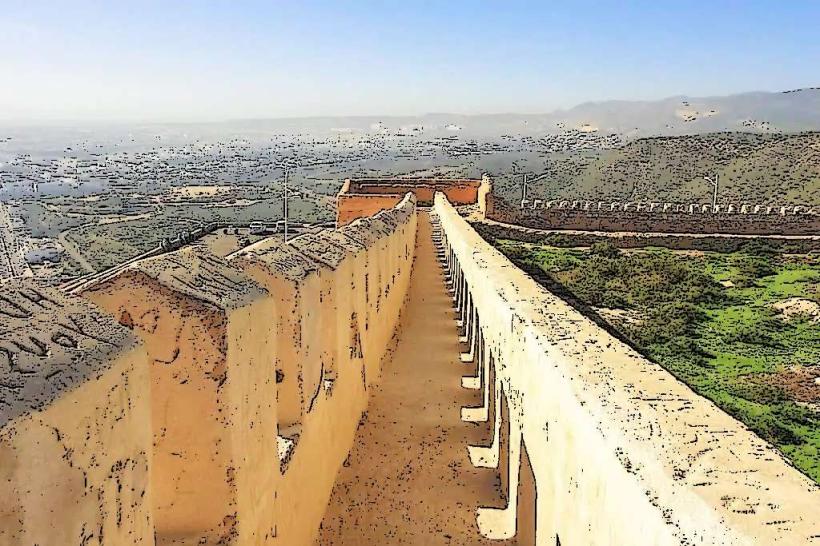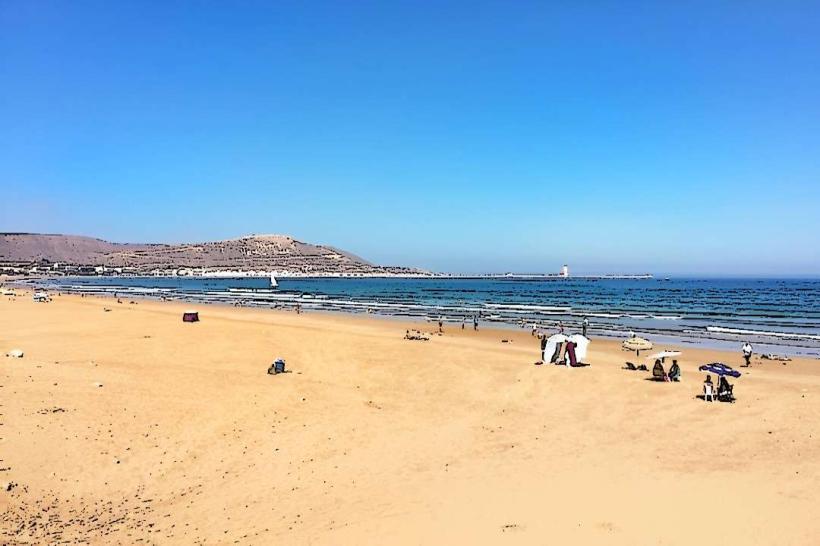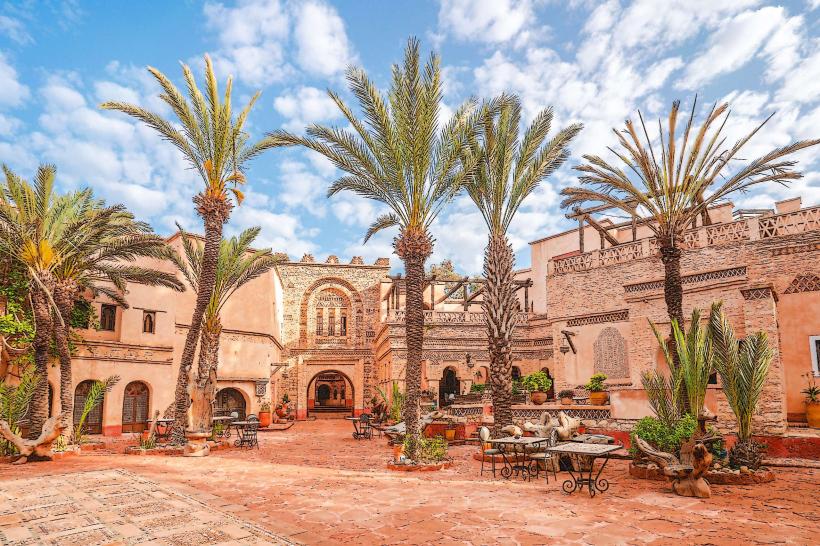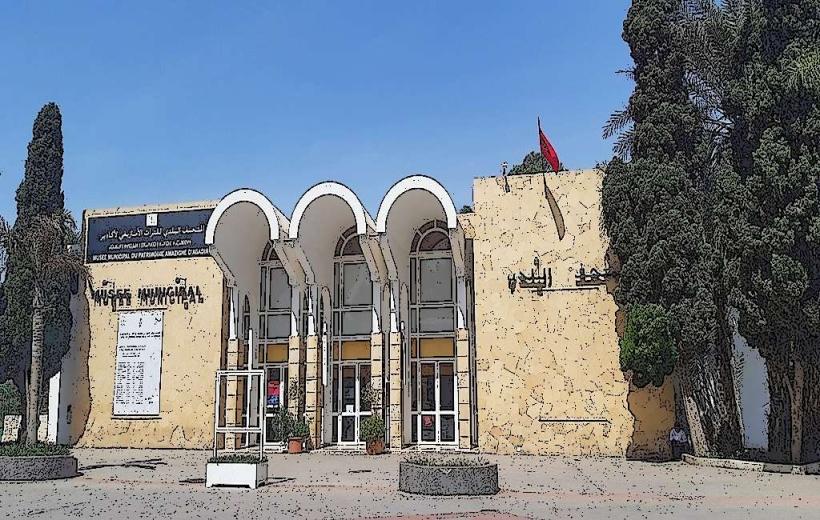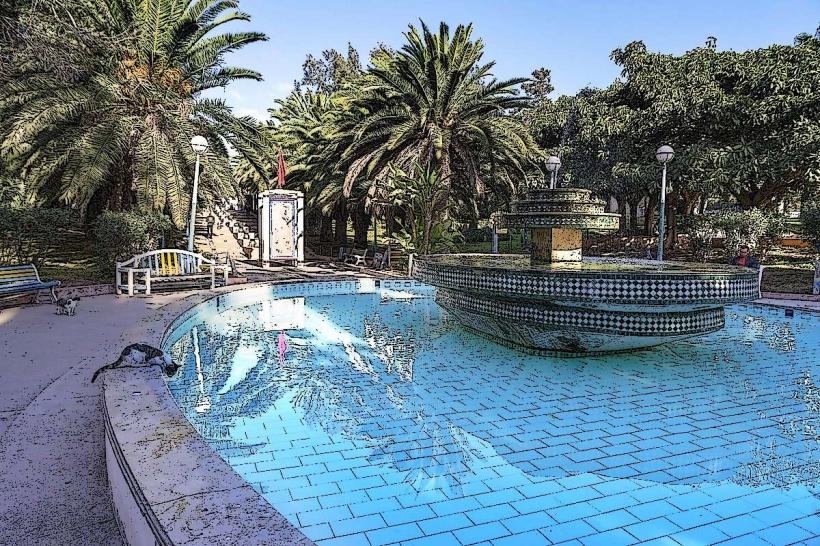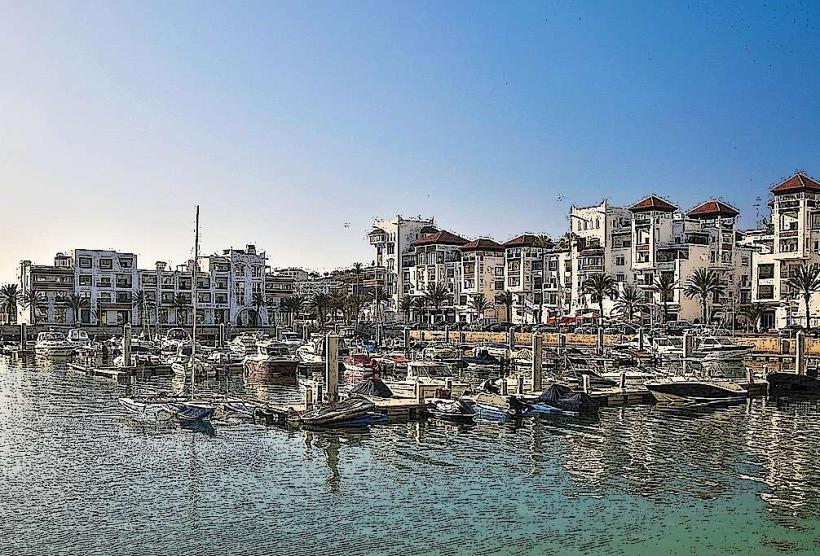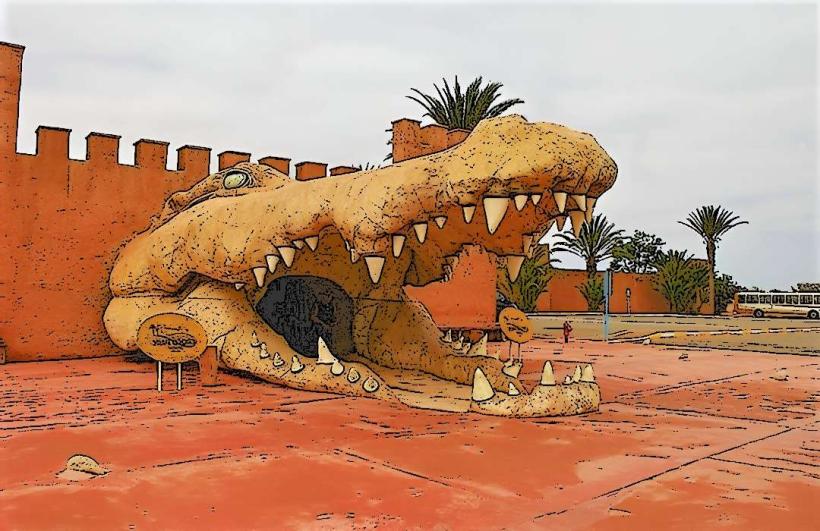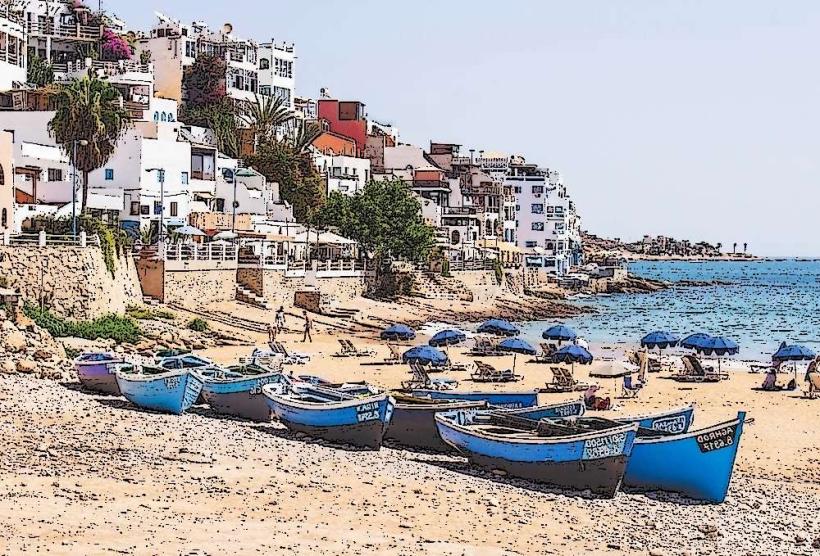Information
Landmark: Souk El HadCity: Agadir
Country: Morocco
Continent: Africa
Souk El Had, Agadir, Morocco, Africa
Souk El Had is one of the most famous and vibrant markets in Agadir, Morocco. Located a short distance from the city's beach, Souk El Had is a bustling and lively marketplace where locals and tourists alike can experience Moroccan culture, shop for traditional goods, and immerse themselves in the vibrant atmosphere of Agadir.
Overview
Location:
Souk El Had is located in the southern part of Agadir, near the city center. It is easily accessible by foot, taxi, or public transport, and it is about a 10-15 minute drive from Agadir Beach. The market is set within a large covered structure that provides shelter from the sun, which is a common feature of Moroccan souks.
Name Meaning:
The name "Souk El Had" roughly translates to "the Sunday market," though it operates every day of the week. The market's name refers to its origins, as it was once traditionally held on Sundays, but over time, it evolved into a daily trading hub.
What to Expect in Souk El Had
Souk El Had is not just a market; it is a cultural experience that offers a wide range of goods, services, and a deep dive into the local way of life. Here's what you can expect:
Traditional Moroccan Goods:
Spices: One of the highlights of Souk El Had is the variety of spices on offer. Fragrant piles of spices such as cumin, saffron, turmeric, and ras el hanout (a traditional spice mix) are displayed in colorful mounds, filling the air with aromatic scents.
Textiles: The market is an excellent place to find traditional Moroccan clothing and textiles, such as djellabas, kaftans, and scarves. You can also find handwoven blankets, shawls, and sheets in beautiful patterns.
Handicrafts: Souk El Had is filled with handcrafted items, from ceramics and pottery to wooden carvings, metalwork, and jewelry. These items showcase the intricate craftsmanship and artistry of Moroccan artisans.
Leather Goods: Leather products, such as bags, shoes, and belts, are abundant in the market, often made from the famous Moroccan leather, known for its quality and durability.
Jewelry: Traditional Berber jewelry can be found in abundance, including silver rings, necklaces, and bracelets that often incorporate amber, coral, and turquoise stones.
Fresh Produce and Food:
Fruits and Vegetables: The market has a large section dedicated to fresh produce, where local farmers sell an array of fruits and vegetables, including oranges, lemons, tomatoes, cucumbers, and herbs.
Olives and Olive Oil: Moroccan cuisine features a variety of olives and olive oils, and you’ll find stalls offering freshly pressed oils and marinated olives in an array of flavors.
Dates and Dried Fruits: As a popular product in Moroccan markets, you’ll find stalls offering dates, figs, and dried apricots, often sold in bulk.
Cheese and Dairy Products: Moroccan cheeses, such as Jben (a fresh, soft cheese), are sold alongside other dairy products.
Snacks and Street Food: The market also has a variety of local snacks and street food stands offering Moroccan sweets, pastries like baklava, and savory treats such as kebabs and tagine.
Crafts and Souvenirs:
Souk El Had is a great place to shop for souvenirs to bring back home. Whether you're looking for a small berber rug, tagine pots, carpets, or Moroccan lamps, the market is filled with unique items that represent Morocco’s rich cultural heritage.
The wooden handicrafts found here are often intricately carved and can be used as home décor, including furniture and decorative items.
Lanterns and mosaic lamps, often made of colored glass, create a warm, inviting atmosphere in the market, and they are perfect for lighting up your home with a touch of Moroccan style.
Local Artisans:
One of the best features of Souk El Had is the opportunity to interact with local artisans who create these goods by hand. Many of them work on-site, allowing visitors to see the crafting process firsthand. You might witness ceramic pottery being painted, leather goods being sewn, or wooden objects being carved.
Bargaining:
As is typical in Moroccan souks, bargaining is a common practice. It's expected that you negotiate the prices of items, so don’t be afraid to haggle with the vendors to get a better deal. This adds to the fun and lively atmosphere of the market.
Atmosphere and Experience
Vibrant and Bustling:
Souk El Had is known for its vibrant and bustling atmosphere, with the sounds of vendors calling out their wares, the hustle of people moving through the market, and the mix of smells from fresh food and spices. It’s an exciting and dynamic environment that captures the essence of Moroccan market culture.
Crowds:
The market can get quite busy, especially on weekends, when both locals and tourists flock to the area. However, despite the crowds, it is still easy to navigate and shop, and the lively atmosphere is part of what makes the market so enjoyable.
Colorful Displays:
The vivid colors of the spices, textiles, fruits, and crafts create a visually stimulating experience. The market’s colors and diversity add to the charm and appeal of the souk.
Smells and Sounds:
The air is filled with the scent of spices, fresh bread, grilled meats, and sweet pastries. The sounds of negotiation, vendors calling out, and traditional Moroccan music in the background contribute to the sensory experience.
Nearby Attractions
Souk El Had is conveniently located near several other attractions in Agadir:
Agadir Beach: The market is just a short drive from the beach, where you can relax and enjoy the seaside after shopping.
Agadir Marina: A modern marina with shops, restaurants, and cafes is nearby, offering a more contemporary experience.
Agadir Kasbah: The Kasbah on the hilltop offers stunning views of the city and the ocean, and it’s a great spot to visit after shopping at Souk El Had.
Conclusion
Souk El Had in Agadir is a must-visit destination for anyone wanting to experience the heart of Moroccan market culture. Whether you are looking for fresh produce, unique souvenirs, spices, textiles, or traditional Moroccan crafts, this bustling market offers a wide variety of products. The lively atmosphere, the opportunity to interact with local artisans, and the sheer diversity of items available make Souk El Had an unforgettable experience for tourists and a vital part of Agadir’s cultural landscape.

